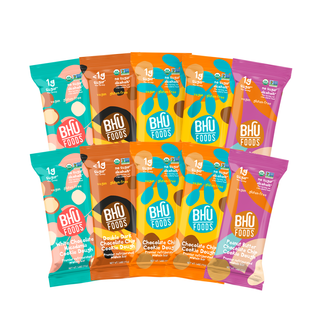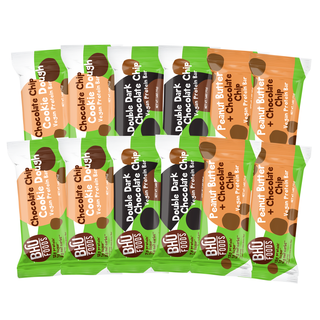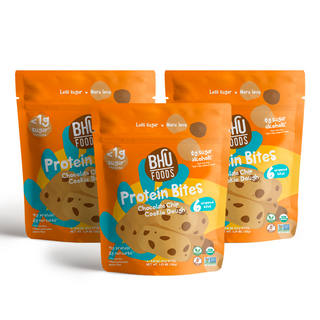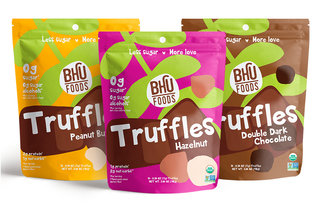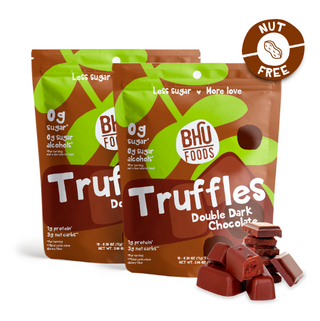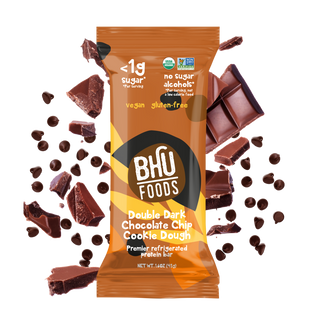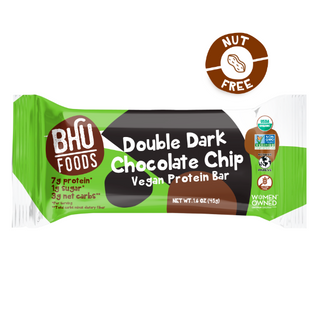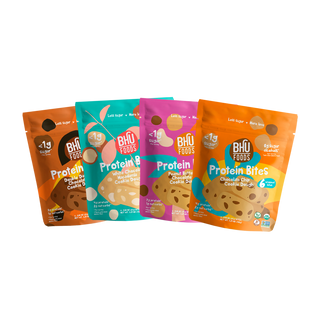
4 Signs You’re Not Eating Enough Fat in Your Diet
With the keto diet craze in full swing, where you cut back on carbohydrate intake and increase fat in the diet, it makes sense that a diet that’s higher in wholesome fats is actually beneficial for your health, productivity and performance, and even weight.
Plus, even if you are not decreasing carbs and following a low-carb diet, adding in a good amount of clean fats, found in unsaturated sources and omega-3 fatty acids, promotes improvements in heart health and longevity as well as satiety, so you’ll feel more satisfied and less hungry throughout the day.
And fat is also just an essential macronutrient that’s needed for basic bodily functions too—so you don’t want to skimp on good fats. You just want to consume them in the right proportions, as any kind of healthy food should be enjoyed in moderation to keep calories in check and prevent unwanted weight gain. (Fat does have more calories per gram, so you’ll want to really make sure you consume enough but don’t over do it on a daily basis.)
It can be hard to tell if you’re deficient in a nutrient though. Luckily, there are some warning signs to watch out for. Here are some symptoms you may experience if you’re not consuming enough healthy fat in your diet, as well as how to boost your daily fat count through delicious, filling meals and snacks.
You’re Lethargic on a Daily Basis
If you’re low in that “pep” and seem to feel more chronically fatigued during the week, as opposed to just a morning after a night with restless, shortened sleep, then it could signify you’re not eating enough fat in the diet.
The body needs fat to increase absorption of certain vitamins that regulate energy levels to keep you more alert. Fat-soluble vitamins include vitamin A, D, E and K, all of which require fat to fully be absorbed and used. So, you might pair carrots (high in vitamin A) and leafy greens (high in vitamin K), as two examples, with something fat based, like olive oil in a salad or with avocado in a dip.
Try adding in little amounts of good fats to accompany these vitamin-rich foods and be sure to snack more often in the day if you see energy levels start to dip. You may also have more pain and muscle soreness too, so if your joints are stiff and it persists regardless of new workout plans or other reasoning, add in some more fats and see if there’s a positive change in symptoms.
You’re Getting the Sniffles Often
Without enough fat, the immune system suffers and you may find yourself feeling under the weather more often, as if you’re jumping from one cold to the next. If you are getting sick often or simply feel “blah,” it could mean you are not eating enough fats or have poor nutrition in general.
Include more foods rich in vitamin C like citrus, kiwi and other brightly colored, fresh fruits and veggies, as well as vitamin D and zinc, like fortified whole grains, among other fortified foods, as well as legumes, nuts and seeds and soy (tofu, edamame, or soymilk).
You can also supplement with vitamin D and zinc if you’re worried about getting enough (this is especially helpful for those on a vegan diet, since both are more commonly found in animal foods).
You are Experiencing Gum Pain and Other Dental Issues
Fat-soluble vitamins A, D, E, and K are extremely important for your mouth and its health. Your teeth and gums need these nutrients to prevent gum recession, plaque buildup and tooth decay, cavities and any other complications or infections that could compromise your oral health short- and long-term.
Vitamin D in particular helps your body absorb calcium, which is directly associated with strong bones and teeth. If you aren’t getting enough Vitamin D in your diet, the enamel on your teeth and your jawbone may start to deteriorate.
Make sure to pair your produce with fat found in nuts and seeds, or fish if you are not on a vegan diet. As for calcium intake, supplement or bump it up too—while dairy is one of the best sources, you can still get good calcium in tofu and leafy greens, for example.
You’re Losing Hair and Muscle
Hair and muscle require protein and fat to repair damage and to stay strong and healthy. So, if you’re not getting enough each day you might notice hair falling out—strands around the home or piled up faster than usual on your hairbrush, as well as less progress in building lean muscle mass, despite a steady exercise plan. And you may have more muscle soreness following workouts too.
Make sure to eat some healthy fat post-workout in particular to immediately repair and strengthen muscles. You can do so by eating a protein bar that’s keto or high in fat or sipping on a quick protein smoothie that has good fat and protein content. To add more fat include nut butter on the bars (or on bites for more fat but fewer calories overall) or blend into the smoothie. It’ll make your snack taste better too!




